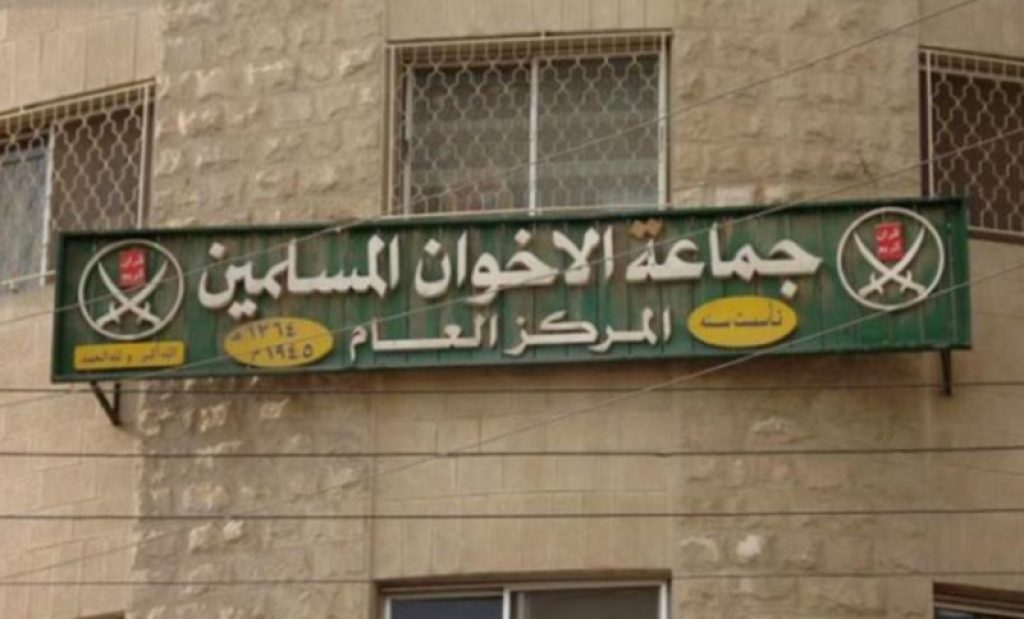
On April 24, Al Arabiya reported that the Muslim Brotherhood’s foreign branch, the “Change Movement,” issued a new call to its members in response to Jordanian authorities banning the group. The organization urged its supporters in Jordan to confront the state. It called on followers to “revise their strategy and confront the Arab regimes,” accusing those regimes of “neglecting support for the Palestinian cause and aligning with Israel.”
The full translated statement by the Change Movement follows:
In the name of God, the Most Gracious, the Most Merciful
In light of the ongoing Zionist escalation against our people in Gaza and attempts to break the will of the resistance, the systematic targeting of the living forces of the Ummah and its resistant heroes continues as part of an organized campaign aiming to silence every free voice and eliminate every project and movement of resistance.
In this context, the General Office of the Muslim Brotherhood has followed the decision issued by the Jordanian authorities to ban the Muslim Brotherhood, in a step that reflects an extremely dangerous level of political subordination and an outrageous alignment with the Zionist project and its agenda hostile to the Ummah’s causes and the aspirations of its peoples.
In response to this decision, the General Office of the Muslim Brotherhood announces a set of principles and positions, as follows:
First: At a time when the challenges facing the Ummah are increasing, and the need for the energies of Islamic movements and their roles in supporting the causes of the Ummah is intensifying, repressive regimes insist on pursuing these movements, banning them, and restricting their freedom instead of supporting and empowering them. The decision of the Jordanian authorities at this sensitive time reveals a dangerous alignment with the Zionist-American project and a direct blow to the tools of resistance and popular support for Palestine. The security justifications accompanying this decision are an integral part of a regional campaign aiming to break the will of the people, confiscate their right to struggle and resist, and cut off any project that confronts the occupation or rejects the path of normalization.
Second: The stance of the Jordanian regime toward the Palestinian cause has never been in harmony with the pulse of the Ummah nor with the demands of the current stage. Rather, it has always been laden with complicity, betrayal, and disgrace. This decision comes as a continuation of a long path of betrayal of the cause and dismantling the trenches of resistance, confirming that this regime has clearly chosen its place outside the ranks of the Ummah and alongside its enemies.
Third: We categorically reject considering support for the resistance as a crime or accusation; rather, we regard it as a badge of honor worn by everyone who has sincerely and consciously stood by Palestine. The persecution of the free because of their support for their central cause is a blatant indication of these regimes’ alignment with the enemies of the Ummah and their complete subordination to the Zionist project.
Fourth: The figures and active forces of the Islamic project must realize that what comes after the Al Aqsa Flood is not like what came before, and that the current moment imposes a radical review of strategies, policies, and positions—a review that goes beyond the logic of waiting and reaction. The equations have changed, the masks have fallen, and it is no longer acceptable to overlook the reality that these regimes, organically linked to the Zionist project, now represent the most prominent obstacle to any liberation or resistance project. Confronting these regimes has become a strategic necessity, the true beginning of the path toward the liberation of Al Aqsa and the restoration of the Ummah’s decision and will. There is no longer room for maneuvering or compromise in the current scene, nor is there room for hesitation or narrow calculations. The time for decisiveness and clarity has come: either a clear alignment with the Ummah’s project and its resistance or a fall into the swamp of regimes that have lost their dignity and sold their causes.
Fifth: To the youth of the Islamic movements, especially in Jordan: You are the weapon of the Ummah in its decisive moment, and confrontation has become a historic duty that is inescapable. Confronting the regimes that guard the Zionist project is not a choice—it is the inevitable path to liberate Al Aqsa and save the Ummah from occupation and tyranny in all its forms: political, military, and intellectual. Do not let this decision break your resolve; rather, make it your starting point. Do not wait for change from anyone … you are the change.
We ask God to steady the feet of the free, to raise the banner of truth high, and to make the Al Aqsa Flood the beginning of a comprehensive awakening that restores the Ummah’s dignity, the resistance’s status, and Al Aqsa’s freedom.
A 2022 report from the Egyptian media site Al Youm al Sabe details that the Change Movement represents one of the most significant recent splinters within the Muslim Brotherhood. The faction is led by Mahmoud El Gamal, a hardline Qutbist figure and a key member of Mohammad Kamal’s armed organization, which has orchestrated major terrorist operations in Egypt.
Unnamed sources told Al Youm al Sabe that foreign actors are attempting to back the Change Movement, hoping it can dominate the Muslim Brotherhood’s warring camps and steer the group in a more militant direction. The report states that the Change Movement has revived and reasserted the jihadist ideologies of Sayyid Qutb, Mohamed Qutb, and Mohamed Kamal, also drawing on the strategic vision of Mahmoud Ezzat, the Muslim Brotherhood’s former acting guide and the spiritual leader of its paramilitary wing.







